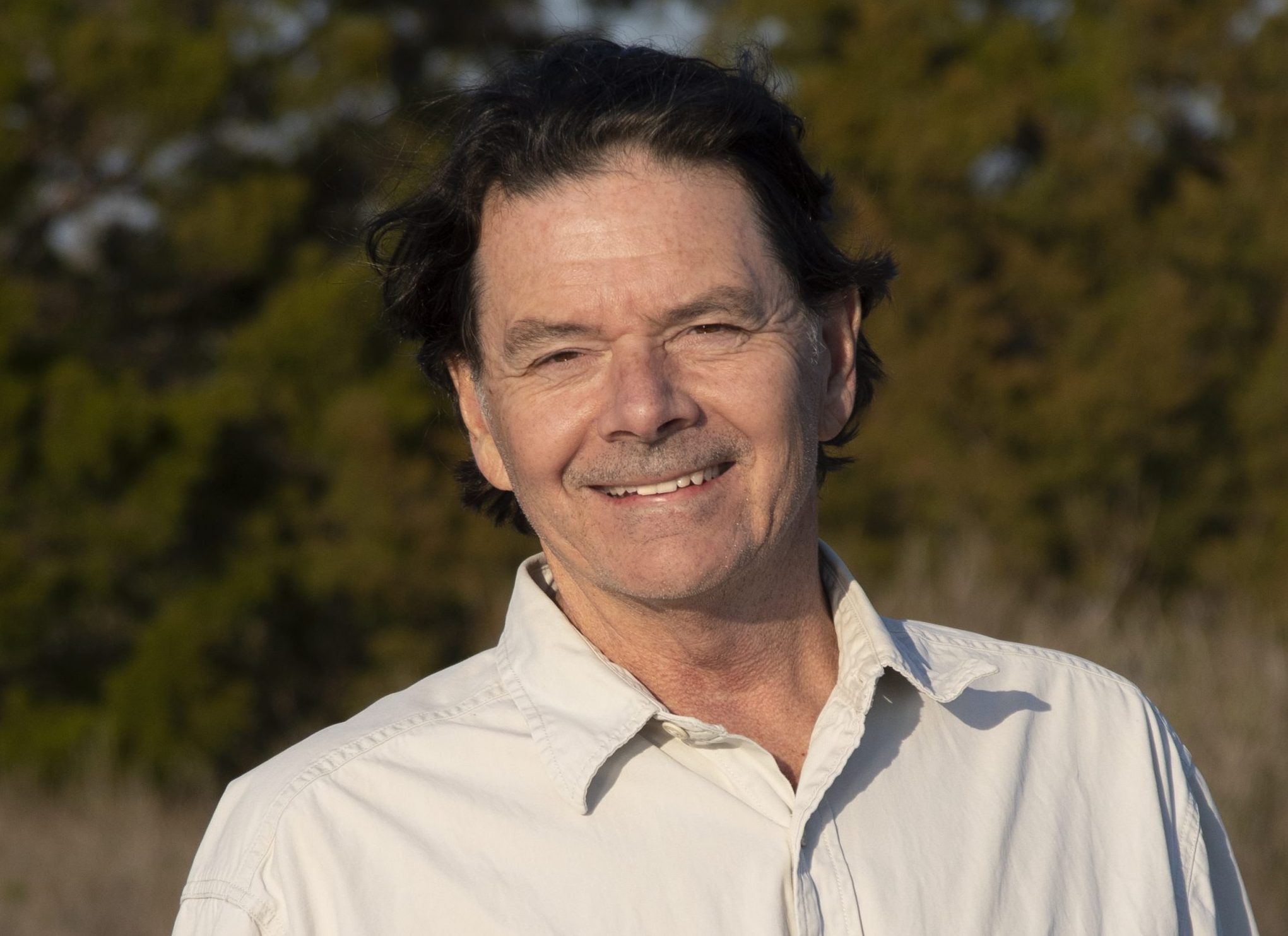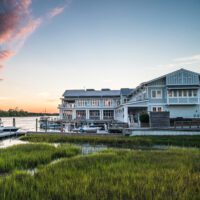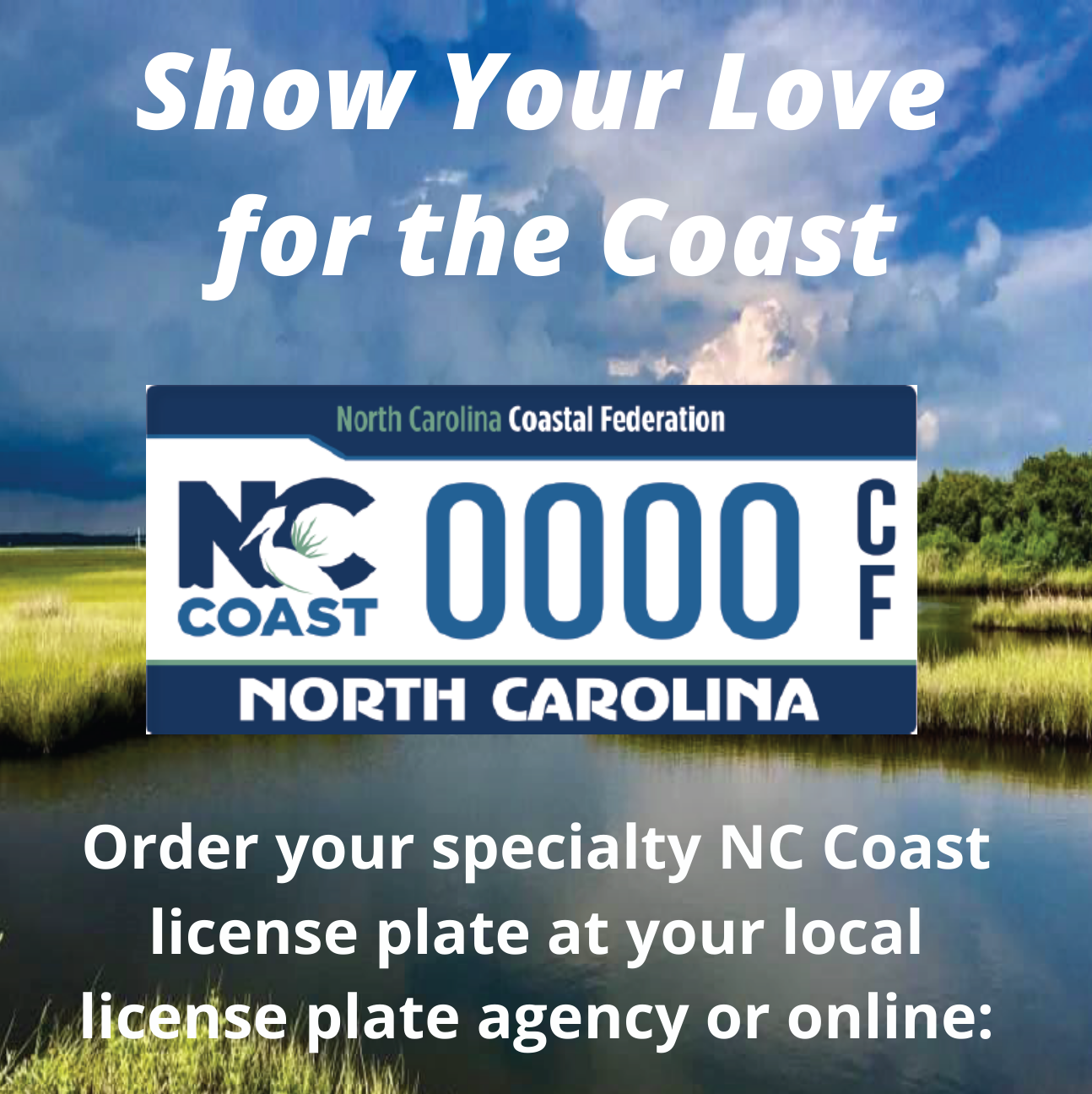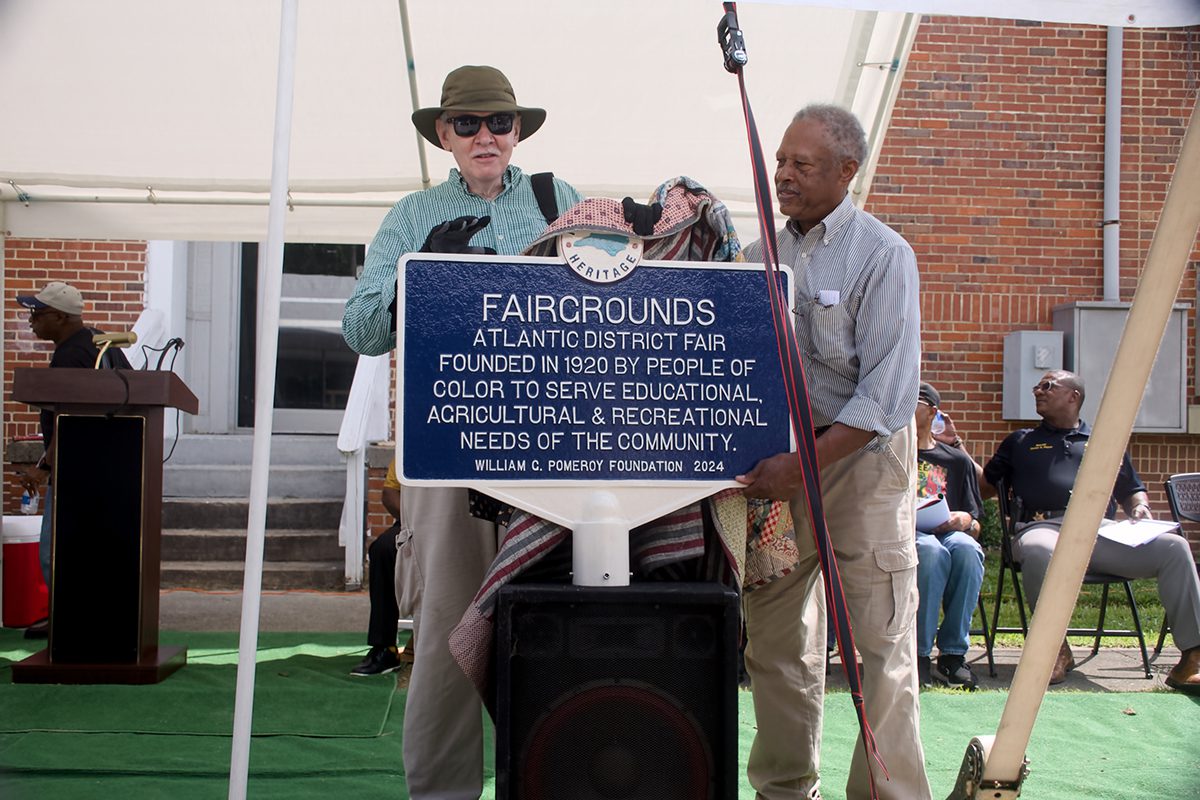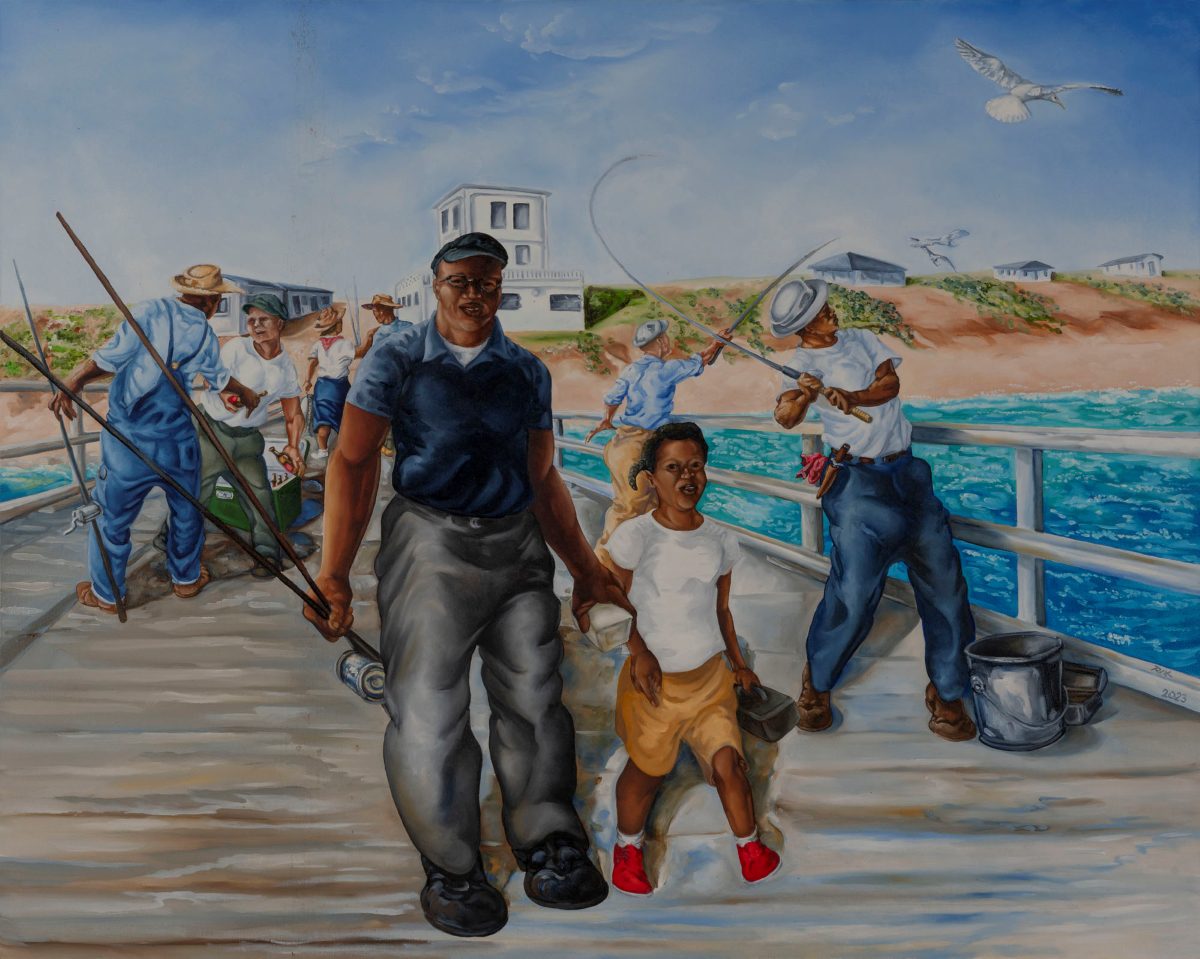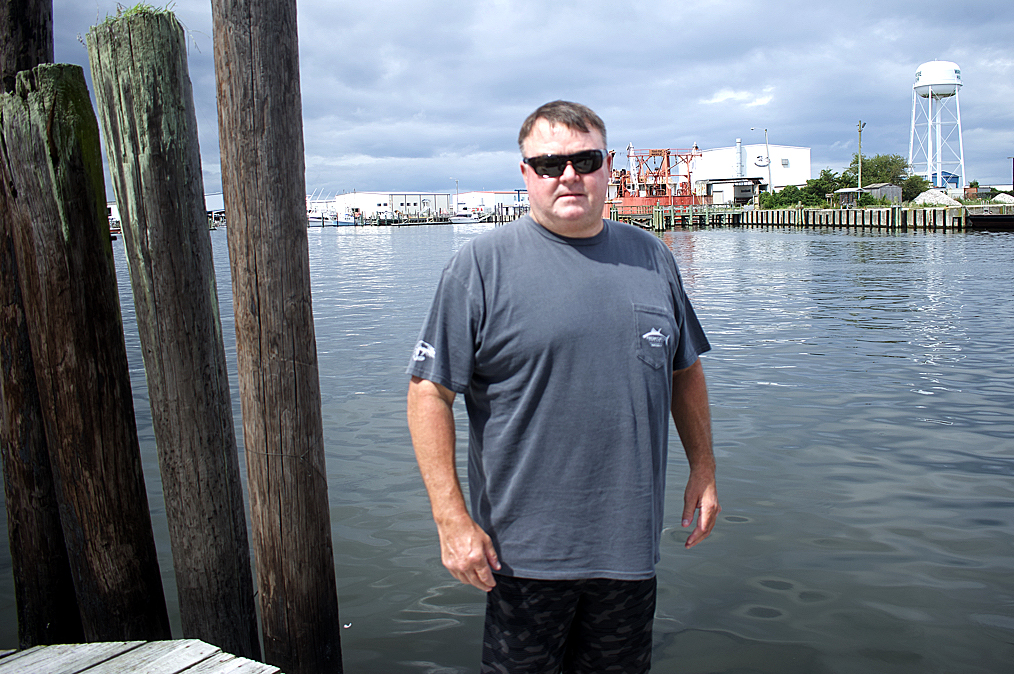This is shaping up to be a big year for Walker Golder.
As he settles into his new job as the North Carolina Coastal Land Trust’s executive director — in the midst of an ongoing pandemic, no less — Golder is preparing to start a new chapter in his personal life: seeing his son off to college.
Supporter Spotlight
“It’s going to be tough,” Golder said in a recent telephone interview. “Some families may look forward to it. That’s not my position.”
Of the universities to which his son and only child, Will, has been accepted, the halls of the Georgia Institute of Technology, more commonly known as Georgia Tech, in Atlanta appear to be calling a little louder to the aspiring aeronautical engineer.
Not exactly following his father’s career path, but that seems to be just fine with the man who has spent more than 30 years working to conserve and preserve the habitats of coastal birds.
After all, Golder’s parents encouraged him to pursue his interests as he grew from a curious boy who spent countless days exploring the waters, marshes and shores near their Wrightsville Beach home through to his college years studying wildlife biology.
“My family was fully supportive,” he said.
Supporter Spotlight
A little more than three decades with the National Audubon Society, where he held roles including deputy state director of Audubon’s North Carolina state office and program director of the Atlantic Flyway Coast Strategy, has made Golder somewhat of a household name in these parts.
He’s shared numerous times how growing up in Wrightsville Beach, a place that was like his own private paradise in the days before seemingly the rest of the world caught on to its charm, played a pivotal role in the man he is today.
So, when asked “What can you tell me that I can share with our readers that most people don’t know about you?” his answer: “I kind of put it out there a lot.”
“What do you not know? It’s no secret I grew up in Wrightsville Beach. It was an incredible place to grow up as a kid. It was very different then than it is now and as a young kid getting to explore the water, and explore the marsh and explore the beach, especially areas of the beach that were still natural, there was never a dull moment. There was never a lack of recreation and my recreation and my interests really revolved around the water.”
He’s been an angler since he could hold a fishing pole. His father taught him how to operate a boat, giving him the opportunity at a young age the ability to access and explore the marsh and tidal creeks winding along the coast.
In the summers, Golder’s parents would buy him a season pass to fish off Johnnie Mercer’s Pier. He could see his house as he waited for a bite from the marine life teeming under surface of the Atlantic Ocean.
By the time he was a preteen, he was an avid surfer. Outside of school, he spent his teenage years teaching sailing and swimming through Wrightsville Beach’s parks and recreation department.
“But still I was fishing, surfing, exploring at every opportunity,” he said.

Somewhere along the way, Golder picked up his father’s camera and another passion blossomed for the young boy.
While in high school, he was exposed to natural areas throughout the state, carrying a camera to document his adventures, be it canoeing down the Black River or hiking the Appalachian Trail.
“I always had a camera with me and I always will,” he said.
His photographs have appeared in dozens of publications, including several books and magazine covers.
He and his three younger siblings – two sisters and a brother – did not necessarily have similar interests, but they were a close family.
“Still are to this day,” Golder said.
When he started his freshman year at the University of North Carolina Wilmington, he did not expect to stay past a couple of years, perhaps transfer to a university with a larger wildlife biology program.
Uncertain of what job opportunities may await him after graduation, he took a diversity of courses, including education classes in the event he might end up teaching at a parks and recreation department.
But an invitation from a professor during Golder’s sophomore year would alter any plans to transfer.
Now-retired professor James Parnell, a staple within the university’s biology department, asked Golder if he’d like to spend the summer traveling the North Carolina coast to survey nesting water birds.
Golder was so intrigued he decided to stop teaching sailing and take Parnell up on the offer.
Being part of that research team, seeing the entire North Carolina coast, visiting every water bird colony and counting every nest of every species, “just was tremendous,” Golder said.
“To me, every single day of that summer was an ‘Oh wow!’ moment,” he said. “Whether we were counting pelican nests and seeing what that looked like — even though I grew up at the beach I’d never seen anything like that — or a wading bird colony, or a colony of least terns that may have had three or four thousand nesting pair on a small island, every single day was just an ‘Oh wow!’”
“To me, every single day of that summer was an ‘Oh wow!’ moment.”
You could say the rest is history.
While Golder was in graduate school at UNCW, Audubon was beginning to develop a plan to broaden its sanctuary program in the state.
Golder’s graduate research on white ibises was funded through a grant Parnell received from Audubon.
Golder was finishing his master’s in 1989 when Audubon advertised the position for its first coastal coordinator.
“Being the first full-time employee for Audubon in North Carolina, at least in the modern era, there was an awful lot to do,” he said. “I was given a list of (privately owned) islands and told to go get them. Interacting with landowners and acquiring those islands and bringing them into the sanctuary system was what I spent my time doing over the first decade.”
Eventually his worked broadened beyond North Carolina to the entire Atlantic Coast.
He wasn’t looking for a new job when he heard someone during a conference call mentioned Coastal Land Trust’s founding executive director Camilla Herlevich, someone he considers a longtime friend and mentor.
When he saw the announcement for the position a short time later, he said he thought, “Wow, that could be really great.”
“I’ve always had a passion for land conservation,” Golder said. “My first job at Audubon was land conservation. It’s incredibly rewarding. You get to see the tangible results of your work. I think it gives me an opportunity to apply what I’ve learned by working with colleagues nationally and internationally. I just want to reiterate what a special place I think the North Carolina coast is and I feel like I have just been incredibly lucky to be a part of it and to still be a part of it. I hope the work that I’ve done in the past and the land trust will do in the future will provide opportunities to young kids who are exploring the state for themselves and for their families so that they can see what a special place we live in.”

